You have a Midshaft Clavicle Fracture (Under 12). This is a break to the middle of your collar bone.
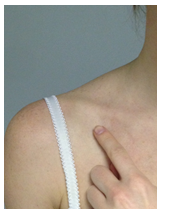
Healing
It normally takes 3-6 weeks to heal, but symptoms can continue for 3-6 months.
Pain and swelling
Your should may be swollen and you will have some pain. Taking pain medication and using ice or cold packs will help. More information is below.
Wearing your sling
Use your sling for 2-3 weeks. You can take it off to wash, dress and do your exercises. It does not need to be worn at night.
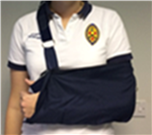
Exercise and activity
It is important to start gentle exercises straight away to prevent stiffness. You will find pictures and instructions for your exercises below.
You should not do any heavy lifting or overhead movement for the first 6 weeks.
Skin tenting
Occasionally, the skin over the fracture site can become very stretched and thin. If the skin around the bone starts to look very thin, or the bone seems very close to the skin, then you need to contact the Emergency Department immediately.
Follow up
A follow up appointment is not normally needed for this injury. Please contact the Emergency Department, your GP or NHS 111, if after 6 weeks your child still has significant pain or swelling. A lump (callus) may appear at the fracture site as it is healing; this is quite normal and should disappear over a few months after the fracture has healed.
Caring for your injury: Weeks 1-3
Remember to use your sling for the first 2-3 weeks. Take it off to wash, dress and do your exercises. You don’t have to wear your sling at night. You may find it more comfortable to sleep propped up on pillows.
Using a cold pack will help with your pain and swelling. You can use an ice pack or bag of frozen peas wrapped in a damp towel. Put this on your shoulder for 15 minutes every few hours. Make sure the ice isn’t in direct contact with your skin.
Try to rest your arm, especially in the first 24-72 hours.
Exercises
Start these exercises straight away. Hand, wrist and elbow exercises are only needed while you are wearing a sling. You can stop these once they become easy and you have full movement. Try to do these exercises 4-5 times a day. Repeat each exercise 10 times.
Hand, wrist and elbow exercises
- Open and close your hand. Next, move your wrist up and down. Repeat 10 times
- After a few days, hold a soft ball or rolled up socks. Squeeze the ball and hold for 5 seconds. Repeat 5 times.
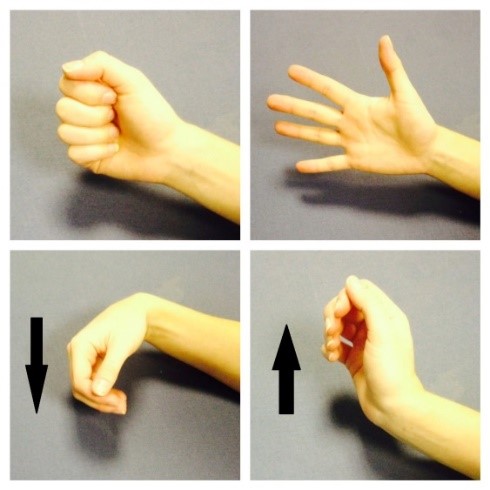
- Bend and straighten your elbow. Repeat 10 times.
- Bend your elbow to a right angle. Slowly turn your palm up to the ceiling and down to the ground. Repeat 10 times.
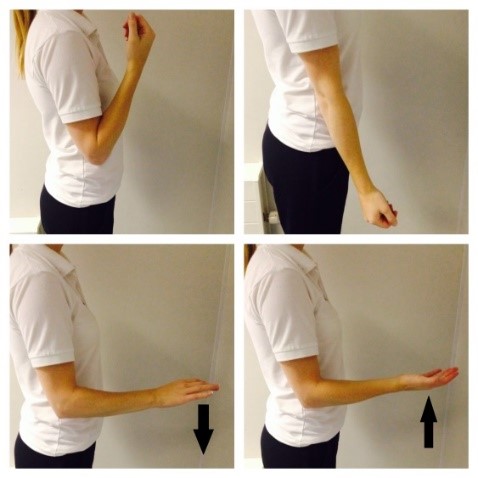
Posture exercise
Bring your shoulders back and gently squeeze your shoulder blades together. Hold for 20-30 seconds. Repeat 5 times.
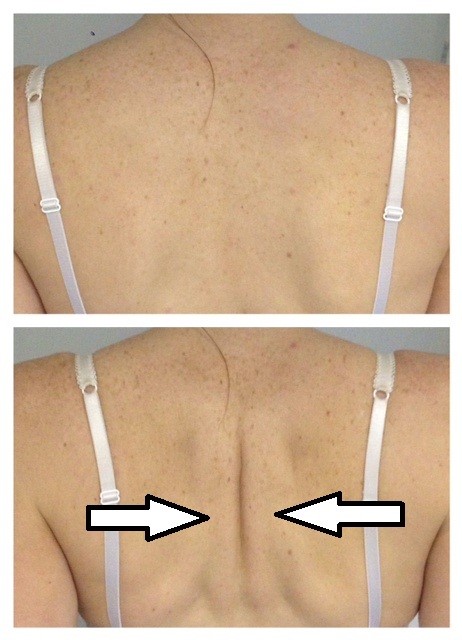
Shoulder pendulum exercise
Stand next to a firm surface. Support yourself with your un-injured arm and lean forwards. Let your injured arm relax and hang down to the ground.
Gently swing your arm, making a small movement. Try to do this forward and backward, side to side and in small circles.
Aim to do this for 1-2 minutes in total. You do not need to push into pain. Remember to keep your arm relaxed.
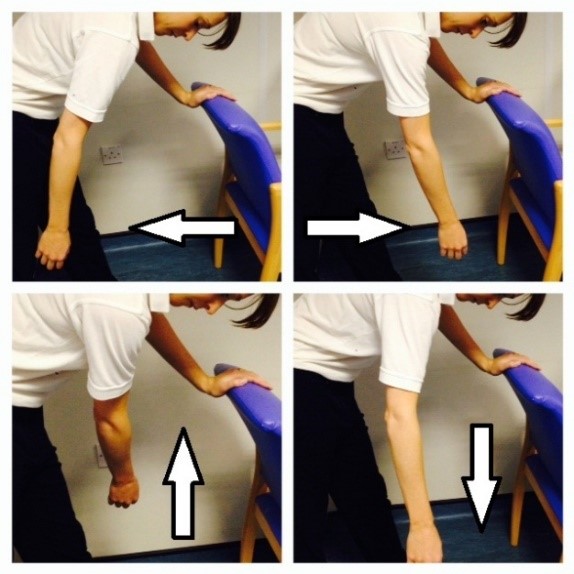
Caring for your injury: Weeks 3-6
You can not stop using your sling.
You can return to light activities. Remember, you should not do any heavy lifting or overhead activity for 6 weeks.
Exercises
Start these exercises 3 weeks after your injury. Try to do them 4-5 times a day. Repeat each exercise 10 times.
Active assisted flexion
Use your other hand to lift your injured arm up in front of you, as shown in these pictures.
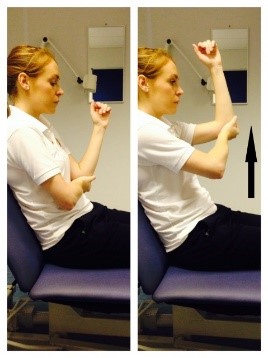
Active assisted external rotation
Keep the elbow of your injured arm tucked into your side and your elbow bent. Hold onto a stick, umbrella or something similar.
Use your good arm to push your injured hand outwards. Remember to keep your elbow tucked in.
If you don’t have a stick, hold your injured arm at the wrist, guide it outwards with your good hand.
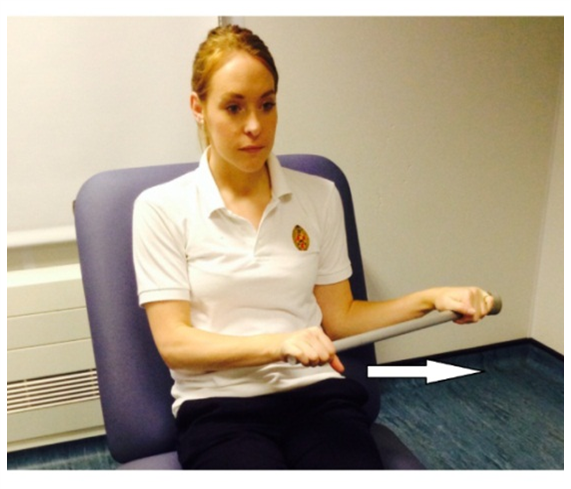
Caring for your injury: From week 6
Your injury should be healed.
You can return to normal activities. Do this gradually and be guided by any pain or discomfort you experience. Some heavier tasks may still be uncomfortable.
Exercises
Start these exercises 6 weeks after your injury. Try to do these exercises 4-5 times a day. Repeat each exercise 10 times.
Active flexion
Lift your arm forwards in front of you. Try to raise the arm as high as you can. You do not need to push into pain. If this is too difficult, try the same movement with a bent elbow.

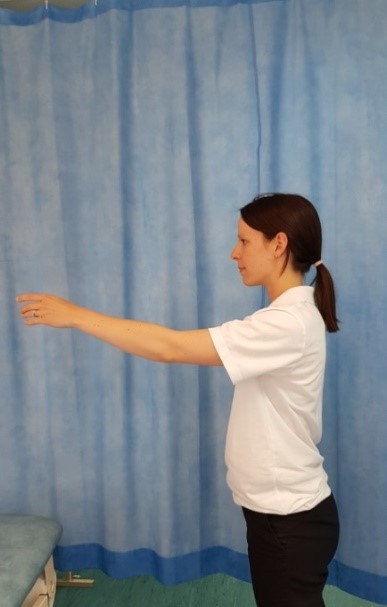
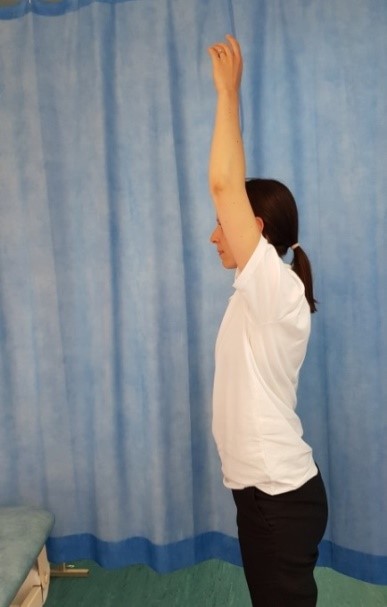
Active abduction
With your palm facing forwards, move your arm out to the side in a big arc. Try to raise the arm as high as you can. You do not need to push into pain. If this is too difficult, try the same movement with a bent elbow.
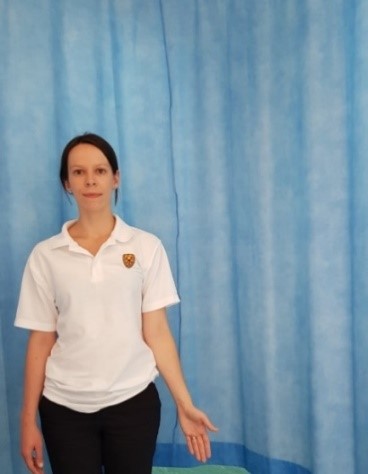
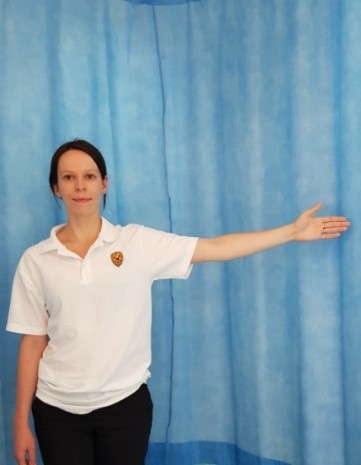
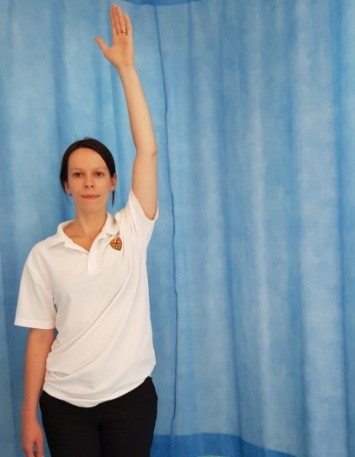
Active external rotation
Start with your elbow bent by your side. Move our forearm out to the side, keeping your elbow bent and near your waist.
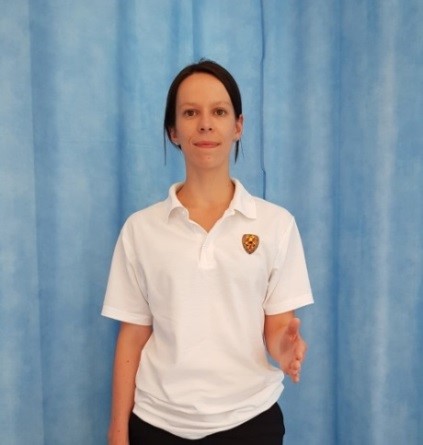
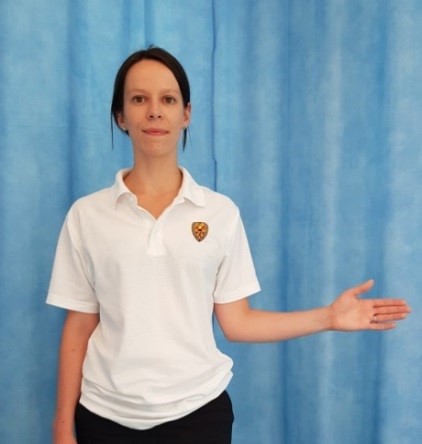
Frequently asked questions
I’m concerned about my child’s symptoms and/or they are struggling to regain movement.
Please contact the Emergency Department, your GP or NHS 111.
My child is struggling with the sling. What do I do?
Contact the Emergency Department.
Should my child go to school?
Your child can attend school as normal once their pain has settled.
